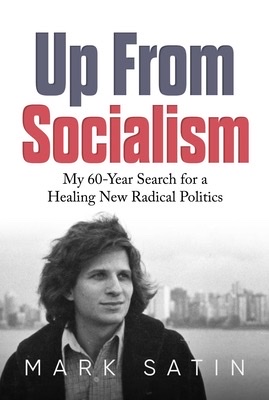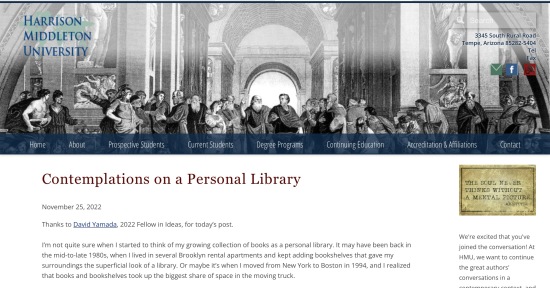
Posted to the Bring Evidence Facebook Page
The cartoon pictured above shows an airline passenger claiming that “smug pilots have lost touch with regular passengers like us,” therefore justifying his call for a show of hands from fellow passengers who think he should fly the plane.
It’s a spoof that hits home at a time when a lot of people are falling for baseless online “information” that purports to portray an alternative truth, often one that mainstream powers-that-be allegedly have been denying or concealing.
Don’t get me wrong. I’m all for questioning conventional wisdom, as John Kenneth Galbraith urged us to do in his 1958 classic, The Affluent Society.
Questioning conventional wisdom and suggesting new approaches can lead to positive change. For example, in U.S. health care, acupuncture was once regarded as pseudoscientific nonsense. Today, major health care institutions such as the Mayo Clinic, Cleveland Clinic, and Johns Hopkins Hospital offer acupuncture treatments.
Similarly, in mental health care, EMDR (eye movement desensitization and reprocessing) was once dismissed as hocus pocus. Today, well established institutions such as the American Psychological Association, the National Center for PTSD, and the World Health Organization recognize EMDR as a valid therapeutic tool for treating trauma, anxiety, addiction, and other conditions.
If we’re going to create new things, develop new treatments, write new laws, build new institutions, and the like, it often means challenging established shibboleths. To do so, it helps to have information and evidence to back up our critique or support our call for change.
Very American traits
Alas, distrust of expertise and research, and avoidance of deep intellectual discussion and analysis, are very American traits. Historian Richard Hofstadter, in his influential 1963 book, Anti-Intellectualism in American Life, articulated a public regard of intellectuals as being “pretentious” and “snobbish,” ultimately presenting as being immoral and subversive. By contrast, the “plain sense of the common man” is regarded as “altogether adequate substitute for, if not actually much superior to, formal knowledge and expertise.”
Some 54 years later, international affairs expert Tom Nichols sounded a similar note in The Death of Expertise: The Campaign Against Established Knowledge and Why it Matters (2017), claiming that “(n)ever have so many people had access to so much knowledge, and yet been so resistant to learning anything.” Nichols cited several factors in undermining the authority of experts in the U.S., including the internet, media outlets promoting anti-intellectual beliefs, and indulgent educational systems fueling students’ overly generous beliefs in their competencies.
It may be worth noting that in 1963, Hofstadter was coming more from the left, and in 2017, Nichols was coming more from the right. But they ultimately sounded similar concerns.
Degree or diploma not necessarily required
I believe in both respecting and challenging expertise. I also believe in creating new experts, including those who may bring very new perspectives to well-trodden areas of knowledge.
There are multiple paths toward acquiring knowledge, understanding, and insight. With the possible exceptions of highly specialized and complex subject matter areas, as well as vocations requiring some type of licensing, it’s not necessary to pursue a formal degree or credential if one is sufficiently curious, disciplined, and intelligent to engage in independent and experiential learning and continuing and adult education offerings.
Among my favorite exemplars of self-made expertise are the Wright Brothers and Jane Jacobs.
Brothers Orville and Wilbur Wright are credited with inventing and flying the first successful airplane, starting with their historic flights at Kitty Hawk, North Carolina in 1903. Their expertise was self-taught. As I wrote here in 2015:
The brothers were smart and eager to learn. Wilbur, especially, demonstrated qualities of genius. Their accomplishments were especially remarkable given that, as McCullough writes, they had “no college education, no formal technical training, no experience working with anyone other than themselves, no friends in high places, no financial backers, no government subsidies, and little money of their own.
At the time Orville and Wilbur were reading the existing scientific studies about the prospects of manned flight and conducting experiments with homemade wind tunnels in their bicycle shop, other more prominent, well-funded inventors and scientists were also trying hard to become the first to achieve motorized flight. But this did not dissuade them from their goal. In fact, they largely rewrote the book on the science of flying. and in the process refuted the previous findings of many “experts” on aviation.
Jane Jacobs had no formal training as an authority on city planning and urban living, but she wrote a signature treatise, The Death and Life of Great American Cities (1961), which fought back against predominant notions of city planning that emphasized access for automobiles, even at the cost of destroying neighborhoods. The Center for the Living City describes her influence this way:
Jacobs saw cities as integrated systems that had their own logic and dynamism which would change over time according to how they were used. With an eye for detail, she wrote eloquently about sidewalks, parks, retail design and self-organization. She promoted higher density in cities, short blocks, local economies and mixed uses. Jacobs helped derail the car-centered approach to urban planning in both New York and Toronto, invigorating neighborhood activism by helping stop the expansion of expressways and roads. She lived in Greenwich Village for decades, then moved to Toronto in 1968 where she continued her work and writing on urbanism, economies and social issues until her death in April 2006.
But you have to do the work
However one acquires expertise, is necessary to do the work. The world has no shortage of fakers and imposters, as well as those who exaggerate their mastery and try to claim authority status. Some fall prey to the Dunning-Kruger effect, which, as explained by The Decision Lab, “occurs when a person’s lack of knowledge and skills in a certain area cause them to overestimate their own competence.” These folks don’t even know what they don’t know.

Spoof ad on social media
Gaining genuine expertise typically requires a lot of learning, often over extended periods of time. And once someone gains a deep grounding, they usually realize that there’s even more to learn. Here, especially, is where a committed practice of lifelong, self-guided continuing education becomes part of a natural growth process.












